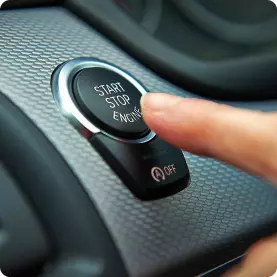North Carolina DWI Laws: 2025 DUI Charges Guide
North Carolina treats driving while impaired (DWI) offenses with a unique sentencing structure based on aggravating and mitigating factors, with penalties ranging from license revocation and ignition interlock requirements to substantial fines and possible imprisonment, even for first-time offenders.

Getting Started
If you’ve been arrested for a DWI in North Carolina, you’re facing both administrative penalties through the DMV and criminal proceedings through the court system. This guide provides general information about North Carolina DUI laws and procedures, but it is not legal advice. For personalized guidance tailored to your specific situation, we strongly recommend consulting with a qualified DWI attorney who can represent your interests throughout this complex process.
Important Note: While this page provides detailed information about North Carolina DUI Laws, DUI.org does not offer legal advice. Laws can change, so consult a qualified DWI attorney for personalized guidance.
Definitions to Know
DWI (Driving While Intoxicated)
North Carolina’s legal term for driving while impaired by alcohol or drugs.
IID
An Ignition Interlock Device is a breathalyzer installed in your vehicle that prevents it from starting if alcohol is detected.
Limited Driving Privilege
A restricted license that allows driving for specific purposes during a suspension period.
North Carolina Division of Motor Vehicles (NCDMV)
The North Carolina Division of Motor Vehicles enforces North Carolina DUI laws through administrative license revocations, applications for limited driving privileges, and oversight of the ignition interlock device program for DWI offenders. The NCDMV works alongside the courts to implement license suspensions and monitor compliance with requirements for license reinstatement.
Steps to Take After DWI Arrest in North Carolina
- Hire an Attorney
Legal counsel can help navigate both administrative and criminal processes.
- License Suspension
Your license will be immediately suspended for 30 days if you failed or refused a chemical test.
- Request an DMV Hearing
If challenging the administrative suspension, you must request a hearing within 10 days of arrest.
- Apply for Limited Driving Privileges
If eligible, you may apply for limited driving privileges after serving part of your suspension.
- Install an Ignition Interlock Device
Required for offenses involving BAC of 0.15% or higher and for repeat offenders.
Explore IIDs - Complete Substance Abuse Assessment
Mandatory assessment and completion of any recommended treatment program.
- Pay Fines and Fees
Court costs, fines, and license reinstatement fees will need to be paid.
- Complete DWI Education Program
Completion of mandated education or treatment programs as determined by assessment.
- Attend Court Proceedings
Your criminal case proceeds through court independently from administrative actions.
- Probation
Probation terms may include regular check-ins and abstaining from alcohol or drugs.
- Avoid Further Violations
Additional violations during suspension or probation can result in severe consequences, including extended suspension periods and jail time.
DWI Laws in North Carolina
What Are the Legal Driving Alcohol Limits in North Carolina?
North Carolina DUI laws make it illegal to drive while under the influence of alcohol, drugs, or both. Law enforcement officers use breathalyzers to measure breath alcohol concentration and other chemical tests to determine impairment. The state has established specific BAC limits depending on your age and license type.
| Driver Category | Legal BAC Limit |
| Drivers over 21 | 0.08% |
| Commercial Drivers | 0.04% |
| Drivers under 21 | Any alcohol concentration (Zero Tolerance) |
Felony vs Misdemeanor DWI Charges
Most DWI offenses in North Carolina are classified as misdemeanors, but certain circumstances can elevate a DWI to a felony charge with much more severe penalties.
Misdemeanor DWI
- First, second, and third offenses are typically misdemeanors
- Punishable by fines, possible jail time, and license suspension
- Sentencing depends on aggravating factors, prior record, and BAC level
Felony DWI
- Fourth or subsequent offense within seven years (Habitual DWI)
- DWI resulting in serious injury (Felony Serious Injury by Vehicle)
- DWI resulting in death (Felony Death by Vehicle)
- Felony charges carry significantly harsher penalties, including longer prison sentences
What Are Drunk Driving Diversion Programs in North Carolina?
North Carolina does not offer pre-trial diversion programs specifically for DWI offenses as some other states do. However, all DWI offenders must complete a substance abuse assessment and any recommended treatment, which serves a rehabilitative purpose. The court may consider participation in these programs when determining sentencing level.
Refusing a Chemical Test Under North Carolina DWI Law
North Carolina has implied consent laws, meaning that by driving on North Carolina roads, you automatically consent to chemical testing if arrested for suspected DWI. Refusing a breath or blood test has significant consequences.
| Consequence of Refusal | Details |
| Immediate License Revocation | 30 days immediately following arrest |
| Extended License Revocation | Additional 12-month revocation |
| Evidence in Court | Refusal can be used as evidence against you |
| Limited Driving Privileges | May be eligible after 6 months of revocation |
| Forced Blood Draw | In some cases, officers may obtain a warrant for blood testing despite refusal |
DWI Penalties & Consequences
Penalties for DWI Offenses in North Carolina
North Carolina uses a unique sentencing structure for DWI offenses that considers aggravating factors, mitigating factors, and grossly aggravating factors to determine the specific level of punishment. There are five levels of misdemeanor DWI, with Level 1 being the most severe and Level 5 the least severe.
DWI Level 5
Fines: Up to $200
Jail Time: 24 hours to 60 days (may be suspended)
Other Requirements: 24 hours community service if jail suspended
DWI Level 4
Fines: Up to $500
Jail Time: 48 hours to 120 days (may be suspended)
Other Requirements: 48 hours community service if jail suspended
DWI Level 3
Fines: Up to $1,000
Jail Time: 72 hours to 6 months (may be suspended)
Other Requirements: 72 hours community service if jail suspended
DWI Level 2
Fines: Up to $2,000
Jail Time: 7 days to 12 months (cannot be suspended)
Other Requirements: N/A
DWI Level 1
Fines: Up to $4,000
Jail Time: 30 days to 24 months (cannot be suspended)
Other Requirements: N/A
Aggravated DWI Level 1
Fines: Up to $10,000
Jail Time: 12 months to 36 months (cannot be suspended)
Other Requirements: N/A
Felony Habitual DWI
Fines: Varies
Jail Time: Minimum 12 months in prison
Other Requirements: Permanent license revocation
Aggravating Factors That Increase North Carolina DWI Penalties
In North Carolina, these aggravating factors lead to elevated punishment levels, harsher fines, longer jail time, and additional requirements:
- Prior DWI convictions within seven years
- BAC of 0.15% or higher
- Driving with a revoked license due to a prior impaired driving offense
- Causing an accident resulting in serious injury
- Having a child under 18 in the vehicle (also triggers additional child endangerment charges)
- Reckless or dangerous driving in addition to impairment
- Speeding to elude law enforcement
- Speeding at least 30 mph over the speed limit
- Passing a school bus illegally while impaired
Driving Without a Valid License
Driving with a revoked license due to a DWI is a serious offense in North Carolina with severe consequences. If caught:
- You’ll face additional criminal charges, possibly including jail time.
- Your vehicle may be seized and potentially forfeited to the state.
- Your suspension period will likely be extended significantly.
- You’ll become ineligible for limited driving privileges.
- Any chance of early reinstatement will be eliminated.
- You’ll incur additional fines and court costs.
This violation creates a cycle of increasing penalties that can significantly delay your ability to legally drive again. The long-term consequences are not worth the temporary convenience of driving while suspended.
License Suspension
Who Determines if You Can Continue Driving After a DWI
In North Carolina, both the Division of Motor Vehicles and the courts have roles in determining driving privileges after a DWI.
Administrative Process
The DMV handles administrative suspensions, which occur automatically when you fail or refuse a chemical test. They also manage the ignition interlock program and license reinstatement process after your suspension period ends.
Criminal Process
The courts determine criminal DWI penalties, including the length of license suspension as part of sentencing. Judges decide whether to grant limited driving privileges and under what conditions, based on the specific circumstances of your case and your punishment level.
These two processes operate independently, meaning you must satisfy both administrative and court-ordered requirements to fully restore your driving privileges.
How Long Will Your License Be Suspended?
Getting your license suspended in North Carolina means you are no longer allowed to drive a vehicle, unless you obtain limited driving privileges during the suspension period. Here’s how long your regular license may be suspended for a DWI in North Carolina:
| Offense | Suspension Period |
| 1st Offense | 1 year |
| 2nd Offense (within 3 years) | 4 years |
| 3rd Offense (within 5 years) | Permanent revocation (may apply for conditional restoration after 3 years) |
| Refusal to Submit to Chemical Testing | Additional 12-month revocation |
Steps to Reinstate Your License
- Serve your full suspension period.
- Complete required substance abuse assessment and treatment.
- Pay restoration fee ($140) and service fee ($100).
- Install an ignition interlock device if required.
- Provide proof of completion of all court-ordered programs.
- Retake driving tests if your license has been revoked for two or more years.
Restoring Your Driving Privileges
Eligibility for Limited Driving Privileges
After a DWI in North Carolina, you may be eligible for limited driving privileges that allow you to drive for essential purposes during your suspension period. These privileges typically permit driving for:
- Employment or work-related transportation
- Educational purposes (school, college, or university)
- Household maintenance and essential needs
- Court-ordered treatment or assessment
- Emergency medical care
- Religious worship
Eligibility requirements include:
- No other pending traffic offenses
- Completed substance abuse assessment and compliance with recommendations
- No other license suspensions or revocations
- First-time offenders may be eligible after serving 30 days of revocation
- High BAC offenders (0.15% or higher) must wait 45 days and install an IID
- Refusal cases may be eligible after 6 months of revocation
You can find more information about limited driving privileges on the NCDOT website or by consulting with an attorney.
How to Apply for Limited Driving Privileges
- Obtain and complete the petition form from the clerk of court.
- Pay the required fee (approximately $100).
- Provide proof of current insurance.
- Submit documentation of substance abuse assessment.
- Show proof of employment or educational enrollment if applicable.
- Install an ignition interlock device if required (for BAC of 0.15% or higher).
- Appear before a judge for approval of your petition.
North Carolina Ignition Interlock Device (IID) Requirements
An ignition interlock device is required in North Carolina under the following circumstances:
- For drivers convicted of DWI with a BAC of 0.15% or higher
- For second or subsequent DWI offenses within seven years
- As a condition of license restoration after multiple DWI convictions
The IID program requirements include:
- Installation by an approved vendor at your expense
- Monthly maintenance and calibration checks
- Payment of installation fee (approximately $75) and monthly fee ($70-$90)
- Required use for one year for high BAC first offenders
- Required use for three years or more for repeat offenders
- Zero tolerance for any BAC readings above 0.00%

Selecting the right ignition interlock provider can make a world of difference.
SR-22 Insurance Requirements
North Carolina does not require an SR-22 insurance filing for DWI offenders, unlike many other states. However, those convicted of DWI will likely face significantly higher insurance premiums, as insurance companies consider DWI offenders high-risk drivers. You will need to maintain continuous auto insurance coverage throughout your suspension period and after reinstatement.

Let us help connect you to the right licensed insurance specialist for you.
Substance Abuse Assessment and Treatment
North Carolina law requires all persons convicted of DWI to complete a substance abuse assessment and comply with recommended treatment before license restoration. The process includes:
- Completing an assessment at a licensed facility (cost approximately $100)
- Following treatment recommendations based on assessment results, which may include:
- Short-term education (ADETS – Alcohol Drug Education Traffic School) for 16 hours
- Longer treatment programs for those with substance dependency issues
- Possible inpatient treatment for severe cases
- Paying all fees associated with education and treatment programs
- Obtaining certificate of completion for DMV license reinstatement

Understand what to expect and how to prepare for a substance abuse evaluation.
FAQs About DWIs in North Carolina
What happens at a DWI checkpoint in North Carolina?
Officers may stop vehicles at designated checkpoints to briefly observe drivers for signs of impairment.
Can I refuse a breathalyzer test in North Carolina?
You can refuse, but under implied consent laws, refusal results in automatic license revocation for 12 months.
How much does a DWI cost in North Carolina?
Total costs typically range from $5,000 to $10,000 including fines, legal fees, increased insurance, and treatment programs.
Will I go to jail for a first DWI in North Carolina?
Jail time for first offenses may be suspended in Level 3-5 punishments, but mandatory jail time applies for Level 1-2.
How long does a DWI stay on my record in North Carolina?
A DWI conviction remains on your criminal record permanently and on your driving record for 7 years.
Sources
- North Carolina Department of Health and Human Services. (n.d.). DWI Statutes. https://www.ncdhhs.gov/providers/provider-info/mental-health-development-disabilities-and-substance-abuse-services/dwi-providers/dwi-statutes
- North Carolina Department of Transportation. (n.d.). Division of Motor Vehicles. https://www.ncdot.gov/dmv
- FindLaw. (n.d.). North Carolina DWI Laws. https://www.findlaw.com/state/north-carolina-law/north-carolina-dwi-laws.html
- National College for DUI Defense. (n.d.). North Carolina DWI Laws. https://www.ncdd.com/north-carolina-dwi-laws
- North Carolina Department of Public Safety. (n.d.). Driving & Alcohol. https://www.ncdps.gov/our-organization/law-enforcement/state-highway-patrol/laws/driving-alcohol
- North Carolina Department of Transportation. (n.d.). Driving While Impaired. https://www.ncdot.gov/dmv/license-id/license-suspension/Pages/driving-while-impaired.aspx
- North Carolina Department of Transportation. (n.d.). Ignition Interlock Devices. https://www.ncdot.gov/dmv/license-id/license-suspension/Pages/ignition-interlock-devices.aspx
- North Carolina Division of Mental Health, Developmental Disabilities and Substance Abuse Services. (n.d.). Driving While Impaired. https://www.ncdhhs.gov/divisions/mental-health-developmental-disabilities-and-substance-use-services/driving-while-impaired
Get support.
What is next? We can help you through the process. Give us a little information and we can support you through the next steps.
All fields are required.